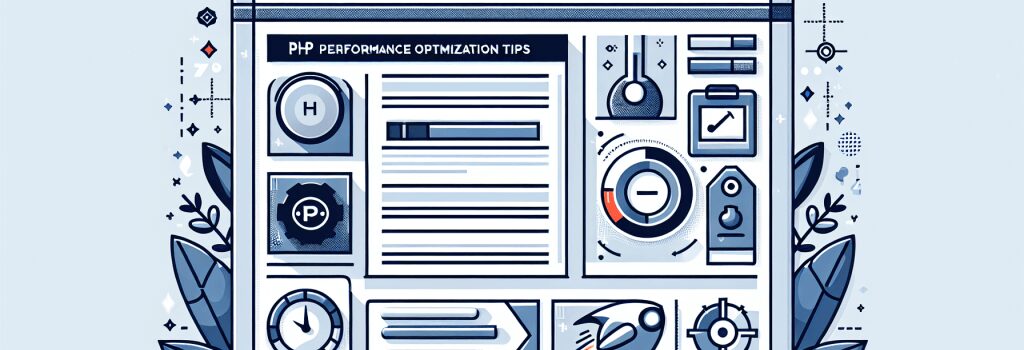PHP Performance Optimization Tips

Optimizing the performance of PHP applications is crucial for maintaining fast and responsive web projects. As PHP continues to be a popular server-side scripting language for backend development, understanding how to fine-tune your PHP code can lead to significantly better performance and a smoother user experience. Let’s dive into some effective strategies for optimizing PHP performance.
1. Use the Latest PHP Version
One of the simplest yet most effective optimization tips is to ensure that your server is running the latest version of PHP. Newer versions of PHP come with significant performance improvements and optimizations over older versions. Upgrading can often lead to immediate and noticeable boosts in the speed of your PHP applications.
2. Optimize Database Queries
Efficient Querying
Poorly designed database queries can be a major bottleneck for performance. Ensure that your queries are optimized by selecting only the necessary columns instead of using “SELECT *,” and make use of proper indexing to speed up data retrieval.
Persistent Connections
Leveraging persistent connections to the database can also reduce the overhead of establishing connections every time a script runs, especially for applications with a high database query load.
3. Utilize OpCode Caching
PHP scripts are interpreted at runtime, which means that every request involves compiling source code into OpCode, which is then executed. OpCode caching tools, such as Zend OpCache, can significantly reduce this overhead by caching the compiled OpCode and reusing it for subsequent executions, greatly improving performance.
4. Profile and Optimize Your Code
Profiling Tools
Tools like Xdebug can help identify bottlenecks in your PHP code by profiling your application’s performance. This allows you to pinpoint specific functions or sections of code that are consuming undue resources or taking too long to execute.
Refactor Inefficient Code
Armed with the insights from profiling, refactor inefficient code segments for better performance. This could involve optimizing loops, reducing unnecessary computations, or caching results of expensive operations.
5. Minimize External HTTP Requests
When your PHP application makes external HTTP requests, such as API calls, it can significantly impact performance due to network latency. Try to minimize these requests, cache the results whenever possible, and consider asynchronous or non-blocking I/O operations for handling such external calls.
6. Use Efficient Data Structures and Algorithms
The choice of data structures and algorithms significantly affects the efficiency of your PHP applications. Opt for data structures that are suited for your particular use case and algorithms with lower computational complexity to optimize performance.
7. Take Advantage of Content Delivery Networks (CDNs)
For web applications serving static content (e.g., images, JavaScript, CSS), using a Content Delivery Network (CDN) can dramatically improve load times for end-users. CDNs distribute your content across multiple global locations, reducing latency by serving content from a location closest to the user.
8. Implement Proper HTTP Caching
Properly configuring HTTP caching headers for your PHP-generated web pages and resources can significantly reduce the number of requests that reach your server, as well as decrease the loading times for repeat visitors.
Conclusion
Optimizing PHP performance involves a multi-faceted approach, from upgrading to the latest PHP versions to refining database queries and leveraging caching mechanisms. By implementing these strategies, developers can ensure that their PHP applications run more efficiently, providing a better experience for end-users and potentially reducing server costs. Remember, optimization is an ongoing process, and regularly profiling and monitoring your applications is key to maintaining optimal performance over time.


